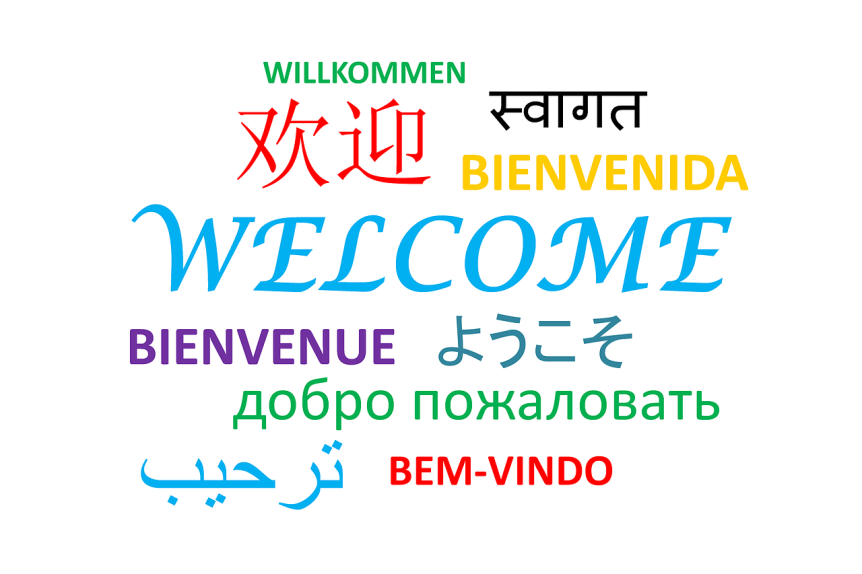International Languages

The CTLR offers peer tutoring to support students currently enrolled in international language courses.
Spring Term Updates
For spring term, language tutoring is available for Arabic, Chinese, French, German, Hebrew, Japanese, Portuguese, Russian, and Spanish. Students need to be currently enrolled in a language course to receive tutoring.
Language tutors may be available by appointment either in-person or remotely. go.middlebury.edu/appt
Mask Policy: The CTLR is currently mask optional in our spaces. Masks may be required at certain events or when meeting with certain advisors or tutors. Remote options are available for most activities.
Frequently Asked Questions
How do students find a language tutor?
Starting the second week of the semester, students who are interested in working with a language tutor can schedule an appointment through the CTLR scheduler.
Do I need to be enrolled in a class to work with a language tutor?
Yes, language tutors only work with students that are currently enrolled in a language course. If you are not currently enrolled in a course, one resource to practice language is Language Tables. You can also contact the department of the language you are interested in to find other opportunities.
What sorts of work do language tutors do with students?
Language tutors can help students with a variety of assignments and learning goals related to a language course that they are currently taking.
Language tutors do the following:
- Explain concepts that students have difficulty understanding
- Use alternate methods and examples to explain content and help students understand
- Help students identify patterns in their speaking and writing
- Share successful study strategies based on experience and training
- Believe a student’s work should reflect his or her own ability-not that of the tutor
- Give positive reinforcement and help students become more confident in their own abilities
- Keep careful records of each student-tutor contact
- Respect privacy of the client as related to the tutoring session(s)
- Help students become more independent as they go along
Language tutors do not do the following:
- Complete assignments for students
- Simply “edit” a student’s work (vs. helping them to see areas of improvement)
- Assist in take-home exams
- Grade assignments or discuss assigned grades
- Attempt to judge the acceptability of work from the instructor’s point of view
- Comment on an instructor’s grading policy, teaching style, or personality
- Discuss a client’s achievements or abilities with other students
Students usually meet with tutors for a maximum of 45 minutes each session. Some students meet regularly with a tutor—once a week or every other week.
Once I have a tutor, how can I make the most of my tutoring sessions?
- Set specific goals ahead of time: The more explicit you are about what you’d like to work on with a tutor, the more that tutor can help you toward meeting those goals. A goal could be to work on a particular assignment or project, to review and clarify grammar or other language points from class, to prepare for a test or presentation, etc.
- Inform your tutor about your needs and experiences: If possible, communicate ahead of time with the tutor, so s/he can prepare for the session. You may even wish to send ahead a description of the assignment, and even a draft, if appropriate.
- Be aware of what tutors can and can’t do: The goal of tutoring is to facilitate long-term learning and independence. This means, for example, that a tutor will not ‘line edit’ your work—i.e. correct all errors. Rather, the tutor will help you identify most important errors, and to learn the rules and patterns that will allow you to correct and prevent those errors on your own.
- Share with us about your experience: Near the end of the semester, you will be sent a link to an anonymous survey, where you can provide feedback about your tutoring experience. At any point, though, you can share your thoughts with Diane DeBella, the language tutoring coordinator, at ddebella@middlebury.edu.
How can a student become a language tutor?
Students become language tutors via faculty referral, usually at the beginning of the fall semester. Students who wish to become tutors should fill out this form. Please note that completing the form does not ensure a position.
Students need to have completed a course in the language department to be hired as a tutor. Hiring is done based on CTLR needs and demand for tutoring within each specific department.You may contact the CTLR to find out whether there is any need for new tutors. Once students are selected as tutors, they are required to complete extensive training (paid) before they can begin working.
NOTE: Contact Diane DeBella at ddebella@middlebury.edu for more information.
Share your experience with us!
Near the end of the semester you will be sent a link to an anonymous survey, where you can provide feedback about your tutoring experience. Please take time to complete this survey, as your responses help us to improve the language tutoring program.
At any point, you can share your thoughts with Diane DeBella at ddebella@middlebury.edu.

